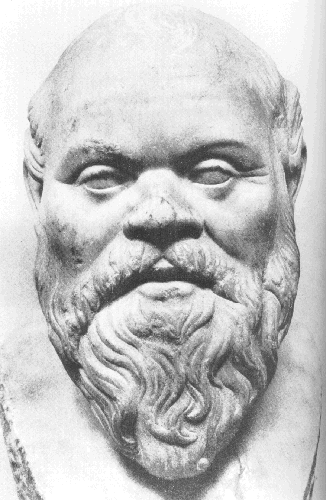
Dasein
Dasein (German pronunciation: [ˈdaːzaɪn]) (sometimes spelled as Da-sein) is a German word meaning 'existence'.[1] It is a fundamental concept in the existential philosophy of Martin Heidegger. Heidegger uses the expression Dasein to refer to the experience of being that is particular to human beings. Thus it is a form of being that is aware of and must confront such issues as personhood, mortality and the dilemma or paradox of living in relationship with other humans while being ultimately alone with oneself.
For the 2015 Indian Bengali-language drama film, see Dasein (film).Karl Jaspers' Dasein and Existenz[edit]
For Karl Jaspers, the term Dasein meant existence in its most minimal sense, the realm of objectivity and science, in opposition to what Jaspers called "Existenz", the realm of authentic being.[22]: 47 Due to the drastically different use of the term Dasein between the two philosophers, there is often some confusion in students who begin with either Heidegger or Jaspers and subsequently study the other.[23]
In Philosophy (3 vols, 1932), Jaspers gave his view of the history of philosophy and introduced his major themes. Beginning with modern science and empiricism, Jaspers points out that as people question reality, they confront borders that an empirical (or scientific) method can simply not transcend. At this point, the individual faces a choice: sink into despair and resignation, or take a leap of faith toward what Jaspers calls "Transcendence". In making this leap, individuals confront their own limitless freedom, which Jaspers calls Existenz, and can finally experience authentic existence.
Other applications[edit]
Eero Tarasti considered Dasein very important in Existential Semiotics. In Tarasti's view the term Dasein has been given a “broader” meaning, has stopped meaning the condition of an individual being flung into the world, having instead come to signify an “existential phase” with the sociohistoric characteristics from which signs extensively emerge.[24]: 24–30
From this point of view, transcendence is the desire to surpass realist acceptance of the world as it is and to move towards a political, ethical and planned reality of subjectivity in semiotic relations with the world.
Jacques Lacan turned in the 1950s to Heidegger's Dasein for his characterisation of the psychoanalyst as being-for-death (être-pour-la-mort).[25] Similarly, he saw the analyst as searching for authentic speech, as opposed to “the subject who loses his meaning in the objectifications of discourse...[which] will give him the wherewithal to forget his own existence and his own death”.[26][27]: 60
Alfred Schütz distinguished between direct and indirect social experience, emphasising that in the latter, “My orientation is not toward the existence (Dasein) of a concrete individual Thou. It is not toward any subjective experiences now being constituted in all their uniqueness in another's mind”.[28]: 183
Aleksandr Dugin uses Dasein as the foundation for the Fourth Political Theory, emphasizing Dasein and its role in Russian society. He puts this in opposition to Western (more specifically American) society, which is far too individualistic with an inauthentic view of individuality.[29]
Criticism[edit]
Theodor W. Adorno criticised Heidegger's concept of Dasein as an idealistic retreat from historical reality.[30]
Richard Rorty considered that with Dasein, Heidegger was creating a conservative myth of being, complicit with the Romantic elements of Nazism.[31]
According to Julian Wolfreys, "There is no direct 'face'-to-'face' relation for Heidegger; despite his invaluable critique of ontology, he still reduces the relation between Dasein and Dasein as mediated by the question and problematic of being."[32]: 110–111